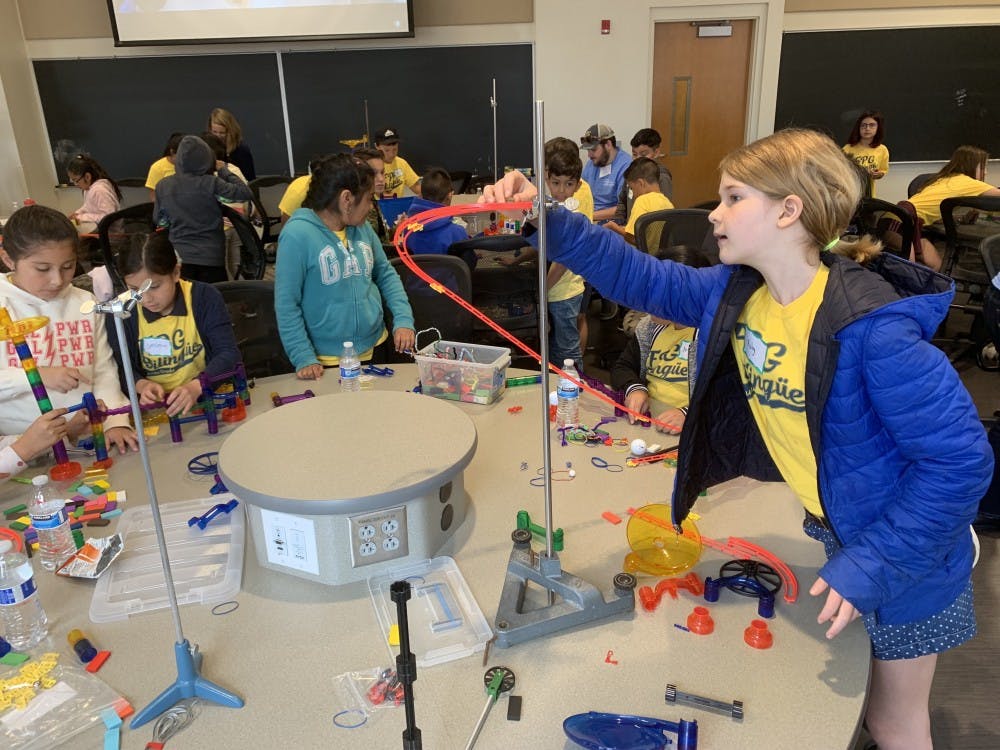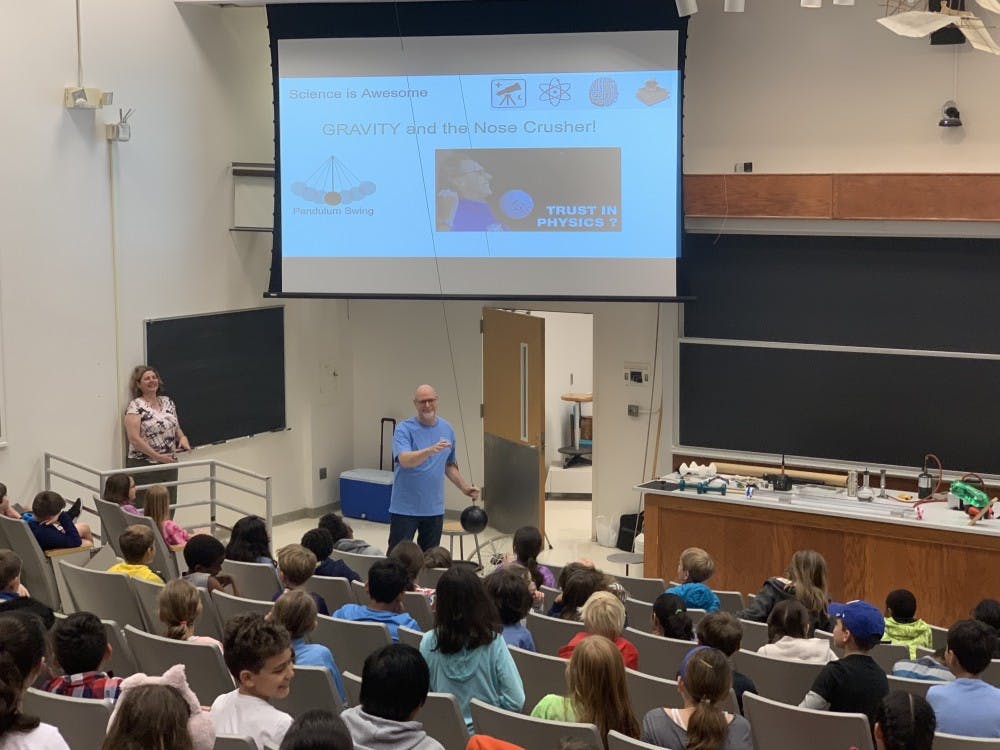On any given Tuesday afternoon, it isn’t strange to see several hundred students eating lunch on Polk Place. This past Tuesday was no different, only this time, the students might have looked a lot smaller than usual.
Four different elementary schools came to UNC’s campus to participate in the Department of Physics and Astronomy’s Science is Awesome Outreach Day. Spread out across Phillips and Chapman Hall, approximately 350 fourth graders got a chance to experience physics and astronomy experiments and research first hand.
All four schools, Estes Hills Elementary School, Frank Porter Graham Bilingüe School, Mary Scroggs Elementary School and Northside Elementary School are all Title I schools, schools where over 28% of the students’ families have income below federal poverty standards. The goal of the program is to promote careers in the field of science as accessible to low-income students by bringing them onto campus and giving them hands on experience.

Students building models to move a chosen object across a table. The activity was designed to demonstrate physics concepts that the fourth graders could undersatnd and interact with.
The program had three different stations set up throughout the two buildings. Kids could watch live demonstrations of mechanics and electricity, build their own models to try to move an object across a table without touching the ground and had an opportunity to see UNC professors present their research and vote on it in a “reverse science fair.”
Astronomy professor Nicholas Law gave a presentation on the search for alien life on other planets. Much like some of the kids, Law said he’s been interested in astronomy since before he could remember. For him, there wasn’t much work to do in making his research fourth-grade appropriate.
“I think the concepts that we’re talking about are actually not that complicated; there’s no esoteric math involved,” Law said. “We’re talking about concepts [the kids are] exposed to in science fiction, that they see around them all of the time and are automatically interested in. It’s just a pleasure to be able to bring that research to them.”



